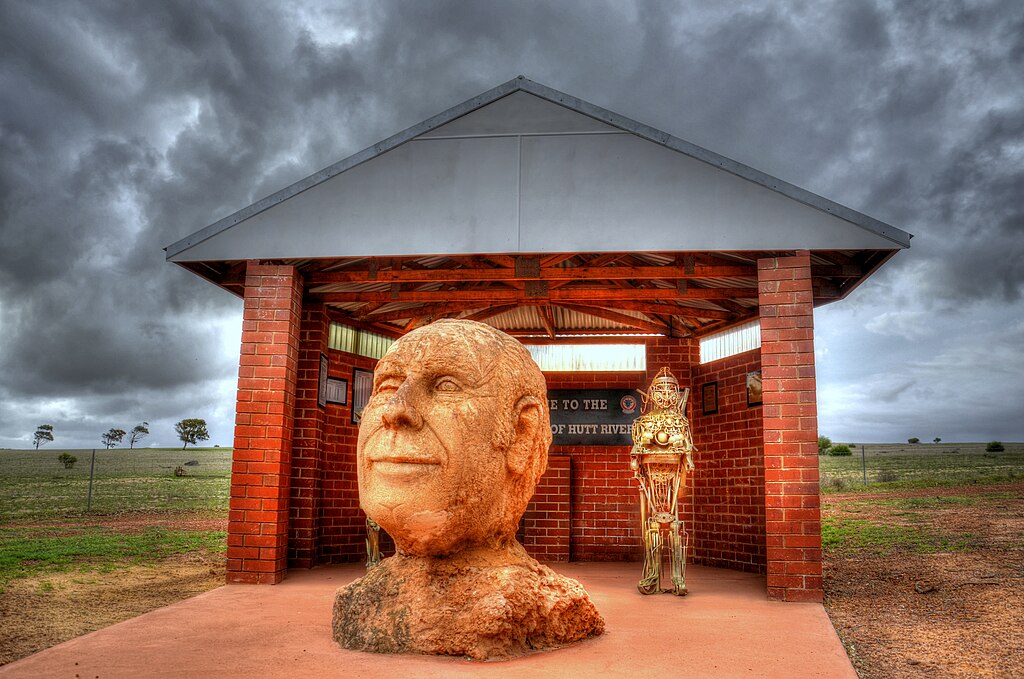The Principality of Hutt River represents a unique and somewhat eccentric instance of micro-nationalism within the broader context of 20th-century political history. Established in 1970 by Leonard Casley, the principality emerged from a dispute with the Australian government over agricultural regulations. Casley, proclaiming himself as the “Prince” of Hutt River, effectively orchestrated a complex interplay of sovereignty, identity, and legality that captured global attention. This essay will deliberate on the inception, development, decline, and eventual fate of Hutt River, particularly in light of the death of Leonard Casley on February 13, 2019.
The origins of the Principality of Hutt River trace back to 1969, when Leonard Casley, a wheat farmer, found himself at odds with the Australian government’s agricultural policies. The government had imposed a wheat quota that was detrimental to his farming operations, prompting Casley to assert that the local governance mechanisms infringed on his rights. Claiming that Hutt River was a separate entity from the Australian continent, he declared the area an independent principality on April 21, 1970. To bolster his claim, he adopted the title of Prince Leonard and introduced a unique set of governance symbols, including a flag, coat of arms, and currency, thus establishing a facade of sovereignty.
The principles underlying the formation of Hutt River encapsulate important dimensions of sovereignty and self-determination—issues that resonate deeply in political theory and practice. By cultivating an identity that straddled the line between a micronation and a quirky sideshow, Casley garnered international interest. The Principality of Hutt River eventually attracted tourists, researchers, and other micronational enthusiasts, significantly contributing to buzz surrounding the concept of self-declared nations. Statistical figures indicate that Hutt River received approximately 30,000 visitors annually at its peak, underscoring its unique juxtaposition as a tourist attraction and a case study in contemporary sovereignty.
The Hutt River issue also prompted substantial legal discourse as Casley challenged the Australian government’s jurisdiction over his land. He made various claims asserting that he had established a new legal precedent, despite the Australian government continually recognizing the area as part of Western Australia. Throughout the years, Casley and his appointed officials engaged in a variety of audacious yet unsuccessful diplomatic efforts to gain international recognition for Hutt River. While they contended that Hutt River had its own currency and was conducting its own demographic statistics, the principality was never recognized as a legitimate sovereign state by any recognized country or international organization.
By the late 20th and early 21st centuries, however, the momentum of the principality began to wane. As the appeal of the micro-nation phenomenon diminished and younger generations became less enamoured by its idiosyncrasies, the Hutt River’s population—which had peaked at around 30 residents—began to decline. With the passing of Leonard Casley on February 13, 2019, the future of the Principality entered a state of uncertainty. Casley’s death has been perceived as a pivotal moment that could potentially herald the dissolution of the principality, given his role as its charismatic and avant-garde leader.
Post-Casley’s death, discussions ensued regarding the status of Hutt River. It was clarified that the ongoing operations of the principality relied heavily on the continued involvement of Casley’s family. Consequently, the inherent fragility of Casley’s claim to sovereignty became starkly apparent. Hutt River was formalized as an unreliable meme of an independent state, reliant solely on the narrative constructed around Casley’s life and vision. The Australian government reiterated its position, affirming that regardless of the princely claims, the territory still belonged to Western Australia.
In conclusion, the Principality of Hutt River stands as an intriguing illustration of individual agency within the frameworks of nationhood and sovereignty. Leonard Casley’s endeavor was not merely a rural embellishment; it encapsulated a complex interplay of identity, legality, and eccentric nationalism. The legacy of the principality, although diminished in relevance post-Casley’s death, continues to provoke discussion on the notions of statehood, legal frameworks, and the essence of personal autonomy within the grand tapestry of contemporary governance. Therefore, the example of Hutt River persists as a compelling case for analysis in the broader study of micro-nationalism and its impact on collective identity formation.

